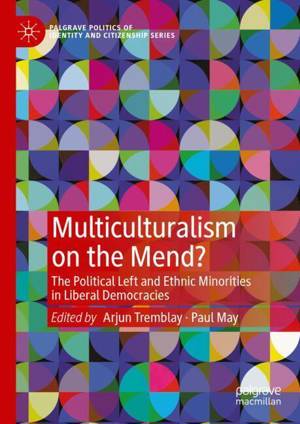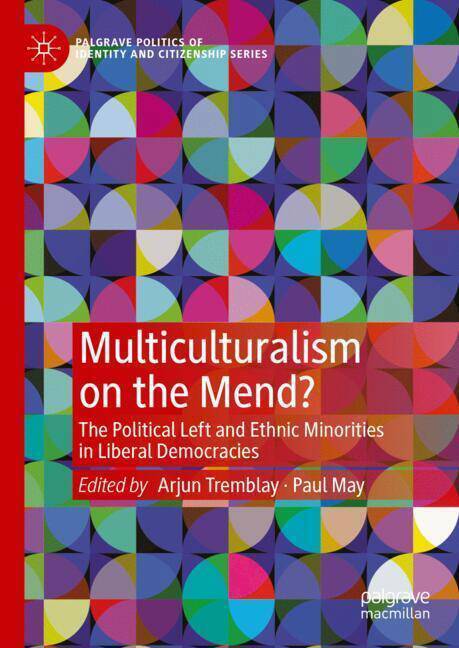
- Retrait gratuit dans votre magasin Club
- 7.000.000 titres dans notre catalogue
- Payer en toute sécurité
- Toujours un magasin près de chez vous
- Retrait gratuit dans votre magasin Club
- 7.000.0000 titres dans notre catalogue
- Payer en toute sécurité
- Toujours un magasin près de chez vous
Multiculturalism on the Mend?
The Political Left and Ethnic Minorities in Liberal Democracies
Description
This book sets out to provide a clearer picture of the movement and directionality of polyethnic rights - or immigrant-centered multiculturalism, as it is more commonly known - following recent shifts to the left in government (i.e., victories of left-parties, inclusion of left-parties in coalition governments, increase in left parties' presence in parliament, defeat of far-right parties and right-wing populists). In so doing, it aims to understand the near and longer-term prospects of multicultural policy, multicultural discourse, demographic multiculturalism, and laws and regulations related to the immigration process in the 21st century and in an increasingly complex ideological environment. The book comprises case studies of multicultural developments in eight countries - Sweden, Canada, Aotearoa New Zealand, Switzerland, Germany, the United States, Australia, and the United Kingdom - all of which have recently (2014-2024) experienced a shift to the left in national level politics, albeit in different ways and to varying degrees. In addition to understanding what has happened to multicultural policy and discourse in recent years, the book also sets out to identify the conditions under which multiculturalism is more or less likely to mend after a shift to the left in government. The book's overall aim is to see whether there is a future for multiculturalism in an increasingly ideologically complex environment or whether the victories of the political right, the rise of populism, the resurgence of anti-immigrant racism, the COVID-19 pandemic, and the changing nature of minority mobilization have irreversibly altered the course of multicultural affairs.
Spécifications
Parties prenantes
- Editeur:
Contenu
- Nombre de pages :
- 250
- Langue:
- Anglais
- Collection :
Caractéristiques
- EAN:
- 9783031717185
- Date de parution :
- 14-11-24
- Format:
- Livre relié
- Format numérique:
- Genaaid
- Dimensions :
- 157 mm x 212 mm
- Poids :
- 458 g

Les avis
Nous publions uniquement les avis qui respectent les conditions requises. Consultez nos conditions pour les avis.





